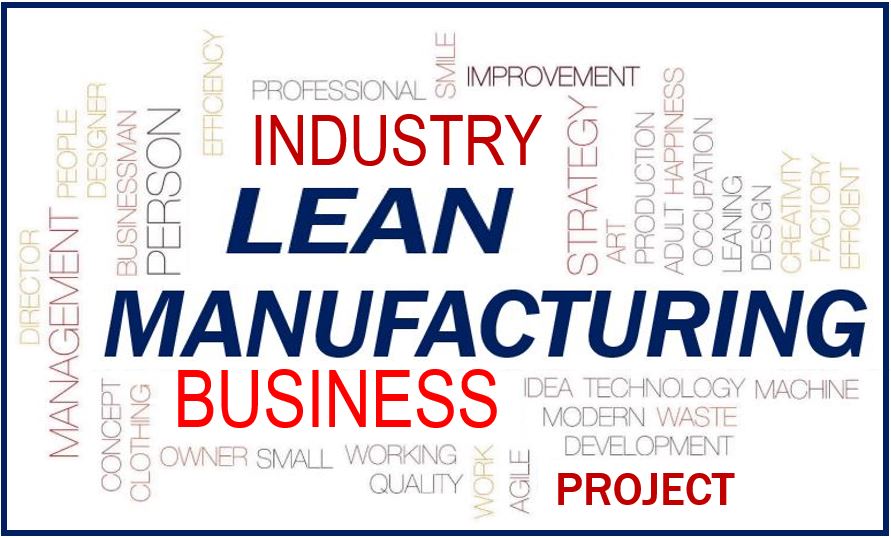Lean manufacturing, a production method, is all about speeding up production systems. The aim is also to reduce response times from the manufacturer or supplier to customers.

Lean Manufacturing & JIT Manufacturing
Lean manufacturing is closely related to JIT Manufacturing or Just-in-Time Manufacturing.
In a Market Business News article about JIT Manufacturing, we wrote the following:
“It is an inventory system that does away with large stocks. Businesses can switch to an alternative method of stock control which minimizes spending and boosts competitiveness.”
“With ‘just in time,’ a company holds virtually no stocks. Instead, it relies on the prompt deliveries of components and raw materials. They must arrive the moment the company requests them.”
Lean manufacturing began in the Japanese automaker Toyota during the 1950s and 1960s. At the time, it was known as the Toyota Production System (TPS) or The Toyota Way.
Companies that practice it say that lean manufacturing principles minimize waste, reduce costs, promote innovation, optimize processes, and reduce the time it takes to get a product to market. In today’s volatile and fiercely competitive marketplace, lean manufacturing can give companies that necessary edge to thrive
Sustainably Deliver Value
When we hear the word lean in business, we immediately think of reducing waste or eliminating it altogether. Although it is an important component of lean manufacturing, it is also about sustainably delivering value to the buyer.
Regarding the sustainable delivery of value to the customer, Planview Inc. writes:
“To achieve that goal, Lean manufacturing defines waste as anything that doesn’t add value to the customer. This can be a process, activity, product, or service; anything that requires an investment of time, money, and talent that does not create value for the customer is waste.”
“Idle time, underutilized talent, excess inventory, and inefficient processes are all considered waste by the Lean definition.”
Four benefits of Lean Manufacturing
According to TWI Ltd., these are the four key benefits to lean manufacturing:
-
Do away with waste
As far as costs are concerned, waste is a negative factor. Waste also undermines your ability to meet deadlines and make best use of your resources.
-
Better quality
If you supply your customers with top quality products, you remain competitive and have a much better chance of expanding. Striving for improved quality is something your competitors take seriously – you cannot afford not to.
-
Lower costs
If you produce too many goods or buy more raw materials than you need, your storage costs will rise. Optimizing materials management and processes can significantly reduce your overall costs.
-
Better use of time
Inefficient work practices waste time and money. The faster you can get your goods to your customers the more loyal they will become. In many sectors of today’s economy, speed matters much more than people realize.
